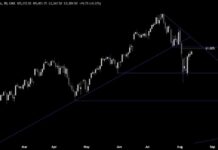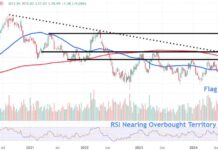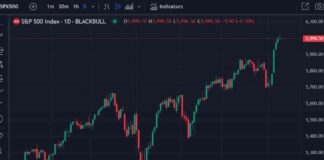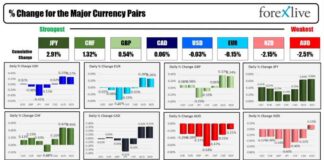On August 23rd, Federal Reserve Chairman Jerome Powell delivered his highly anticipated speech at the annual conference in Jackson Hole, Wyoming, against the stunning backdrop of the Teton mountains. Powell’s message struck a notably dovish tone, signaling a shift in the central bank’s approach to inflation and interest rates. This pivotal moment in monetary policy has significant implications for economists, investors, and the broader financial markets.
The Federal Reserve’s Policy Shift
Powell’s speech marked a significant shift in the Federal Reserve’s policy stance. After a period of aggressively raising interest rates to combat rising inflation, Powell indicated that the central bank was now prepared to adjust its approach. This shift reflects a more optimistic outlook on inflation and the economy, suggesting that the Federal Reserve may adopt a more accommodative monetary policy in the coming months.
Powell’s decision to begin the descent from the peak of interest rate hikes is a clear signal that the central bank is willing to adapt its strategy in response to changing economic conditions. This shift is likely to have far-reaching implications for financial markets, as investors recalibrate their expectations for future interest rate hikes and inflation dynamics.
Implications for the Economy
The Federal Reserve’s more dovish stance on inflation and interest rates has important implications for the broader economy. A less aggressive approach to raising interest rates could help support economic growth and employment, as businesses and consumers benefit from lower borrowing costs. This shift in policy may also provide a boost to asset prices, as investors anticipate a more supportive monetary environment.
However, the Federal Reserve’s decision to pivot towards a more accommodative stance on inflation and interest rates is not without risks. A prolonged period of low interest rates could fuel inflationary pressures and asset bubbles, potentially leading to imbalances in the economy. Policymakers will need to carefully monitor economic data and adjust their policy stance accordingly to ensure a balanced approach to monetary policy.
Market Reaction
Powell’s dovish remarks had an immediate impact on financial markets, with stocks rallying and bond yields falling in response to the Federal Reserve’s more optimistic outlook on inflation and interest rates. Investors welcomed the central bank’s shift towards a more accommodative stance, as it signaled a commitment to supporting economic growth and stability.
The market reaction to Powell’s speech underscores the importance of central bank communication in shaping investor expectations and market dynamics. The Federal Reserve’s ability to effectively communicate its policy decisions and economic outlook can have a significant impact on financial markets, influencing asset prices, interest rates, and investor sentiment.
In conclusion, Jerome Powell’s optimistic stance on inflation and interest rates represents a significant shift in the Federal Reserve’s policy approach. By signaling a more dovish outlook, Powell is positioning the central bank to adapt to changing economic conditions and support economic growth. The implications of this shift for the economy, financial markets, and investors are significant, underscoring the importance of effective central bank communication and policy adjustments in navigating a dynamic and uncertain economic environment.

















